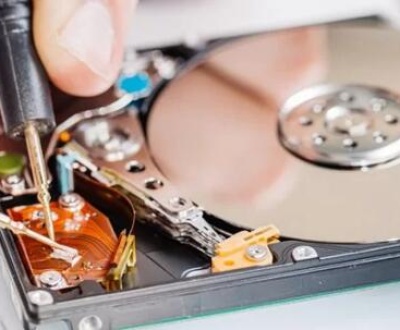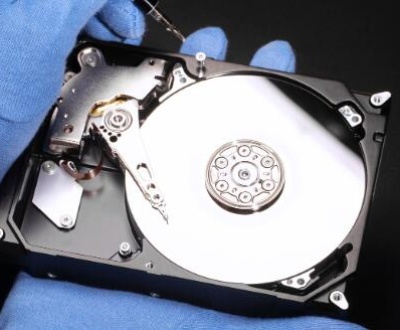1. Data Recovery Services
Columbus, Ohio, being a vibrant tech hub in the Midwest, offers a wide range of data recovery options for residents and businesses alike. Whether you’re dealing with a failed hard drive, a damaged SSD, or an inaccessible external hard drive, professional recovery services in Columbus are equipped with the tools and expertise needed to recover lost data.
2. Why Choose Data Recovery Services in Columbus, Ohio
Columbus, Ohio, boasts a diverse array of IT professionals and data recovery specialists. Whether you’re a resident or running a business in the area, choosing a local provider has several benefits:

Proximity and Convenience: Having a local service allows for quick communication, easy drop-offs, and personal consultations.
Experienced Technicians: Many data recovery professionals in Columbus have years of experience handling various data loss situations. Whether it’s physical damage or logical corruption, their expertise can significantly increase the chances of successful recovery.
Cost-Effective: Local providers may offer competitive pricing without the added shipping or handling costs associated with national or international services.
3. Types of Data Recovery Services Available
Data recovery encompasses a range of services tailored to specific types of data loss. Here are some common types of data recovery services available in Columbus:
1. Hard Drive Recovery
Hard drives are the most common storage devices, and they often face issues like mechanical failure, physical damage, or logical corruption. Columbus-based recovery experts use specialized software and hardware to retrieve data from these drives.
2. SSD Data Recovery
Solid-State Drives (SSDs) are faster and more reliable than traditional hard drives but still prone to data loss, especially due to wear and tear, file corruption, or power failures. Recovery from SSDs requires specific knowledge of NAND technology.
3. RAID Data Recovery
RAID (Redundant Array of Independent Disks) setups are often used for data redundancy and performance. When one or more drives in a RAID array fail, data recovery services in Columbus can help restore the RAID configuration and retrieve lost files.
4. External Drive Recovery
External hard drives are often used for backups, but like any other storage device, they can fail. Recovery experts in Columbus can handle data loss caused by mechanical failure, bad sectors, or accidental deletion.
5. Mobile Device Data Recovery
In addition to traditional computer storage, many data recovery services in Columbus specialize in mobile device data recovery. Whether it’s an iPhone, Android phone, or tablet, they have tools to recover photos, contacts, messages, and more.
6. Cloud Data Recovery
Cloud storage platforms are susceptible to issues like account hacking, accidental deletion, and corrupted files. In some cases, Columbus data recovery services can assist in retrieving lost or deleted cloud data, although this service is highly dependent on the platform’s policies.
4. Common Data Loss Situations
Understanding the causes of data loss is key to addressing it effectively. Some of the most common scenarios that lead to data loss include:
1. Accidental Deletion
Whether you mistakenly delete files or folders or accidentally format a drive, this is one of the most frequent reasons for data loss. Fortunately, accidental deletion is often recoverable with the right tools.
2. Hardware Failure
Hard drives and other storage devices can fail due to mechanical issues, electrical surges, or wear and tear. This can result in partial or complete data loss.
3. File System Corruption
Corruption of the file system, whether due to improper shutdowns, virus attacks, or software errors, can render files unreadable. However, with the right recovery software, these files can often be restored.
4. Natural Disasters and Physical Damage
In rare cases, physical damage from events like fire, water damage, or extreme heat can destroy your storage device. Data recovery in these cases is more difficult, but not always impossible, depending on the extent of the damage.
5. Viruses and Malware
Malicious software can corrupt or encrypt files, making them inaccessible. Ransomware attacks, in particular, can render files unusable until a ransom is paid. Recovery from these situations often requires specialized tools and expertise.
5. How Data Recovery Works
The process of data recovery is complex and requires specialized equipment and knowledge. Here’s a basic overview of how data recovery typically works:
1. Diagnosis
The first step in data recovery is a thorough diagnosis of the storage device. A professional technician will examine the drive to determine the cause of the data loss and assess whether recovery is possible.
2. Data Extraction
Once the problem is identified, technicians will attempt to extract data using specialized software and hardware. In cases of physical damage, they may need to open the device in a cleanroom environment to minimize further damage.
3. Recovery
After extraction, the data is transferred to a secure location for recovery. The technician will then work to repair damaged files, recover corrupted data, and ensure that the files are usable.
4. Return of Data
Once recovery is successful, the recovered data is returned to the client. It may be transferred to a new hard drive, cloud storage, or another medium, depending on the client’s preference.
6. Choosing a Data Recovery Service in Columbus
Selecting the right data recovery service in Columbus can be challenging. To help you make an informed decision, consider the following factors:
1. Experience and Reputation
Look for companies with a proven track record of successful data recovery. Check customer reviews, ask for testimonials, and verify how long they’ve been in business.
2. Certifications and Cleanroom Facilities
For physical damage to hard drives, ensure the service provider has a certified cleanroom to perform recovery tasks without contaminating the drive.
3. Free Evaluation
Most reputable data recovery services offer a free initial evaluation. This allows you to understand the scope of the problem and whether recovery is possible before committing to any fees.
4. Data Security
Ensure the provider has strict data security measures in place. Your recovered data should be handled with confidentiality and returned securely.
7. What to Look for in a Data Recovery Service Provider
When evaluating data recovery services, keep the following criteria in mind:
Expertise in Your Type of Data Loss: If you’ve lost data due to RAID failure or SSD corruption, make sure the service provider specializes in those areas.
Cost Transparency: Be wary of hidden fees. A reputable provider will give you a clear cost estimate after the initial diagnosis.
Customer Support: Good customer support is essential for guiding you through the recovery process and keeping you informed of progress.
Turnaround Time: In urgent cases, look for services that offer expedited recovery options.
8. Cost of Data Recovery in Columbus, Ohio
The cost of data recovery can vary depending on the type of damage and the complexity of the recovery process. Typical pricing structures include:
Basic Recovery: $100 to $500 (for logical issues, accidental deletion, or minor corruption).
Advanced Recovery: $500 to $2.000 (for hardware failure or physical damage).
RAID or Server Recovery: $2.000 to $5.000 (depending on the complexity of the array and number of drives).
Make sure to ask for an estimate before proceeding and inquire about any guarantees.
9. Timeline for Data Recovery
The time required for data recovery depends on the complexity of the problem. Simple cases may be resolved in a few days, while more complex issues may take several weeks. If you need data urgently, inquire about expedited services.
10. Preventing Future Data Loss
While data recovery can save your files in many cases, it’s always best to prevent data loss from happening. Consider these preventative measures:
Regular Backups: Use cloud storage or external hard drives to back up your important files regularly.
Maintain Hardware: Keep your hard drives and other storage devices in good working condition, and replace them if they start showing signs of failure.
Use Anti-Virus Software: Protect your devices from malware and viruses that can cause file corruption.
About us and this blog
Panda Assistant is built on the latest data recovery algorithms, ensuring that no file is too damaged, too lost, or too corrupted to be recovered.
Request a free quote
We believe that data recovery shouldn’t be a daunting task. That’s why we’ve designed Panda Assistant to be as easy to use as it is powerful. With a few clicks, you can initiate a scan, preview recoverable files, and restore your data all within a matter of minutes.
Subscribe to our newsletter!
More from our blog
See all postsRecent Posts
- Data recovery salt lake city utah 2025-04-18
- Data recovery sacramento 2025-04-18
- Data recovery miami 2025-04-18

 Try lt Free
Try lt Free Recovery success rate of up to
Recovery success rate of up to









